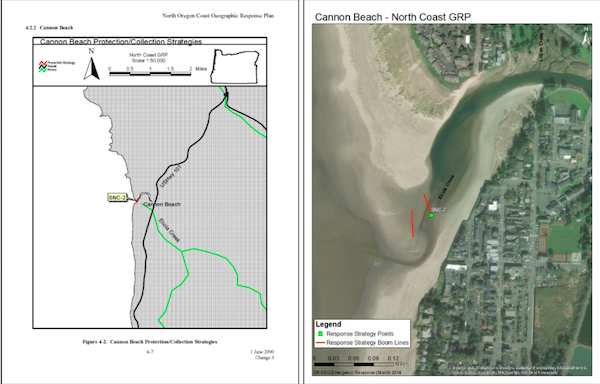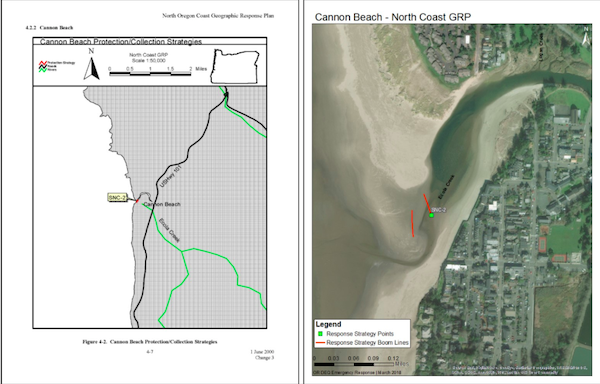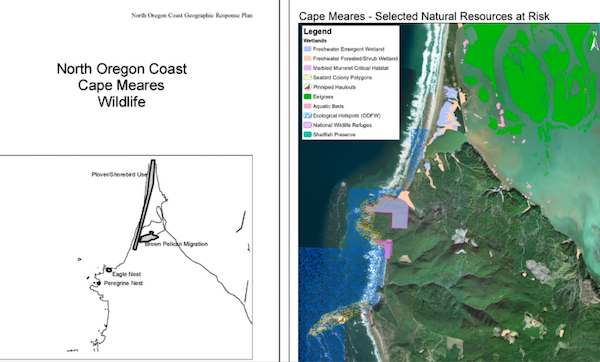
Oregon's Department of Environmental Quality needs your coastal knowledge and feedback in updating the State's Coastal Oil Spill Response Plan, more formally known as Geographic Response Plans. The plan provides critical information for on-the-ground responders to best manage the disaster of an oil spill. While we all know that oil cannot be contained and would be catastrophic to our coast, response plans are critical in mitigating the impacts to important coastal habitats and species. The DEQ has done a great job of pulling together resources and a rad storymap to help you engage in the process - no public meetings required! Read on here to learn more and explore.
 Time for an update: An example of the maps for oil spill responders from the original plan at left and at right what an updated site response map might look like.
Time for an update: An example of the maps for oil spill responders from the original plan at left and at right what an updated site response map might look like.
The early 90s was a great era for technology and innovation. The Pentium microprocessor was introduced by Intel, Windows 3.1 was launched by Microsoft and the World Wide Web was officially born at CERN. It was also the last time the Department of Environmental Quality (DEQ) updated Oregon's Oil Spill Response Plan. Amazing and cutting edge as these innovations were at the time, they are sorely out of date today. With crude oil exports on the Columbia, disaster by rail in the Gorge and an overly-charged Department of Interior eyeballing oil/gas leases off Oregon's coast, the DEQ decided to put the latest technology to work in updating our state's Oil Spill Response Plan.
 At left a resource index of Cape Meares from the old plan, at right the Cape Meares spatial resource information available to us today
At left a resource index of Cape Meares from the old plan, at right the Cape Meares spatial resource information available to us today
The who, what where and why of all of this on DEQ's storymap is WAY more interesting and engaging than we can do justice here with our little blog words, so head on over to their story website, linked here for full screen and maximum coastal eye candy storytelling. Dive in to learn more about the planning effort and how you can share your local knowledge of potential spill sources, site specific resource information, special areas that need protection and more!
Download Full Public Information
Download the Oil Spill Planning Annual Report
Visit Oregon's Ocean Policy Clearing House for more agency information on the planning effort: https://www.oregonocean.info/index.php/ocean-issues/111-oil-spill-contingency-planning
